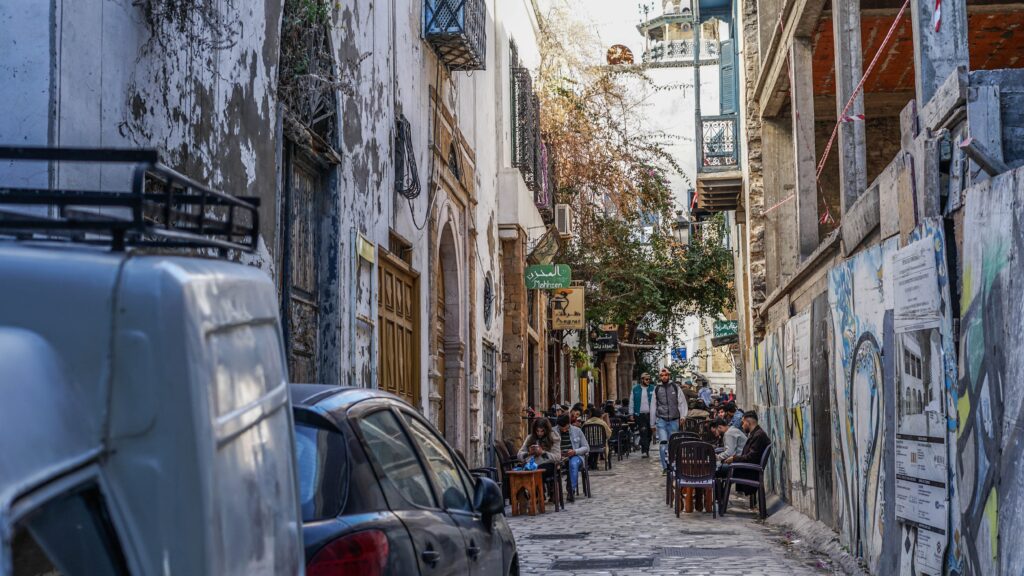Tunis
Learn more about Tunis' food system below
City overview
Tunis, the capital and largest city of Tunisia, is home to about 2.7 million inhabitants and guides much of the policies and direction across the rest of Tunisia. At the national level, food and nutrition insecurity persists due to various challenges; the vulnerable population has difficulty accessing safe and nutritious food essential for growth, development, and overall well-being. Thus, there has been an increase in the rate of childhood overweight. In Tunis, numerous programs have been developed to enhance food security in the city, including a vegetable garden in the Tunis botanical garden. With support from the AfriFOODlinks project, Tunis intends to combat food waste, promote urban and peri-urban agriculture, integrate circular economy principles, incorporate the social economy, enhance capacity building in digitalisation for transforming its food system, and establish platforms for knowledge sharing and exchange.


Tunis' food system ambitions as part of AfriFOODlinks
● Promotion of urban and peri-urban agriculture.
● Fight against food waste, and promotion of the circular economy.
● Integration of the social economy in the transformation of urban food systems.
● Creation of a network of platforms for urban and peri-urban agriculture for mutual learning about the success and failures of projects.
● Strengthen capacity in the digitalisation of processes and services of the food supply chain.
Programmes in place
Creation of a vegetable garden in the Tunis botanical garden (the Belvedere), in partnership with UN-HABITAT.
Challenges
• Food and Nutrition Insecurity: Addressing food-related issues is currently a matter of urgency for Tunisia.
• Food Waste: Addressing food waste is an essential component of government and local development initiatives.
Achievements
Tunis has had some success in addressing malnutrition and childhood stunting. The local determinants of malnutrition in children, such as literacy among mothers and multiparity (parity above 4), have improved, and the consumption of a diet low in animal protein or with little variety has declined over recent decades. Thus there has been a decrease in the rate of stunting.
"It is important to stress the importance of food supply and distribution systems in ensuring the security of urban areas. There must be concordance and harmonisation between municipal food policies and programmes...Municipal bodies must inevitably be involved in the main policy decisions and sectoral programmes relating to the food system. They must be a key stakeholder.” - Souad Abderrahim, Mayor of Tunis speaking in Rome, March 2019
Status of food and nutrition security
- Access to healthy and nutritious food, especially for children
- Strong informal sector
- Multi-functional centres that improve food security and provide community resilience Improved circular economies
